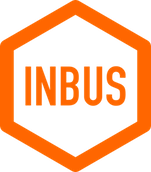Protocol¶
Version¶
This document describes the Inbus protocol up to Version 2
History¶
| Version | Description | Date |
|---|---|---|
| v1 | Initial version | Nov 2017 |
| v2 | Payload must be base64 | Mar 2018 |
Terminology¶
Use of the words, must, should, could, etc. adheres to the best practices suggested in RFC2119.
Version info is [marked in bold between square brackets]
Description¶
[Unless otherwise specified, no changes have been made in v2]
Protocol messages MUST be specified in the following JSON format:
{
"version" : <inbus-version>,
"opcode" : <opcode>,
"application" :[ <app-key>, <app-type> ],
"address" : [ <ip-number>, <port> ],
"payload" : <payload>
}
All messages MUST contain all elements, even if they are not used.
Elements that do not apply to a particular type of message (as
defined by its <opcode>), SHOULD be an empty string or zero,
depending on the data type.
[increased with each new protocol version]
<inbus-version>- Integer specifying the Inbus protocol version. MUST be 2.
<opcode>Integer specifying the type of message.
- 0: reserved
- 1: subscribe
- 2: unsubscribe
- 3: publish
- 4-999: reserved
<app-key>String identifying the application to which the message applies.
The values
*and_inbusare reserved for future use.<app-type>Integer, specifying an application defined value. Can be used to distinguish multiple messages related to the same application.
The element only applies to publish messages.
<ip-number>String containing the IP number part of the subscriber address. The address identifies the subscriber.
In case of a publish message, the element does NOT apply.
<port>Integer containing the port number of the subscriber address. The address identifies the subscriber.
In case of a publish message, the element does NOT apply.
The subscriber address, together with the
app-keyuniquely identifies a subscription.<payload>String specifying a user defined payload. This implies that binary data must be string-encoded.
The element only applies to publish messages.
[since v2:]
The payload MUST be base64 encoded.
Infrastructure¶
The protocol SHOULD use port 7222.
Version Interoperability¶
Inbus server implementations MUST guarantee that messages published using a certain protocol version are also distributed to the subscribers using that same protocol version.
Inbus server implementations MUST reject messages of unknown protocol versions.
Example messages¶
{ "version" : 2 ,
"opcode" : 1,
"application" : [ "upnp", 0 ],
"address" : [ "127.0.0.1", 3456 ],
"payload" : ""
}
Subscription message indicating that the subscriber wants to receive messages from an application that publishes messages under the “upnp” app-key. The subscriber can be reached at the 127.0.0.1:3456 address.
{ "version" : 2 ,
"opcode" : 2,
"application" : [ "upnp", 0 ],
"address" : [ "127.0.0.1", 3456 ],
"payload" : ""
}
Message indicating that the subscriber (reachable at the address 127.0.0.1:3456) no longer wants to receive messages from the application that publishes messages under the “upnp” app-key.
[In v1, the message looks like:]
{ "version" : 1 ,
"opcode" : 3,
"application" : [ "upnp", 17 ],
"address" : [ "", 0 ],
"payload" : "Omega - Gammapolis I. - 0:45"
}
Message sent by the application using the app-key “upnp”, using app-type 17.
[In v2, the message looks like:]
{ "version" : 2 ,
"opcode" : 3,
"application" : [ "upnp", 17 ],
"address" : [ "", 0 ],
"payload" : "T21lZ2EgLSBHYW1tYXBvbGlzIEkuIC0gMDo0NQo="
}
